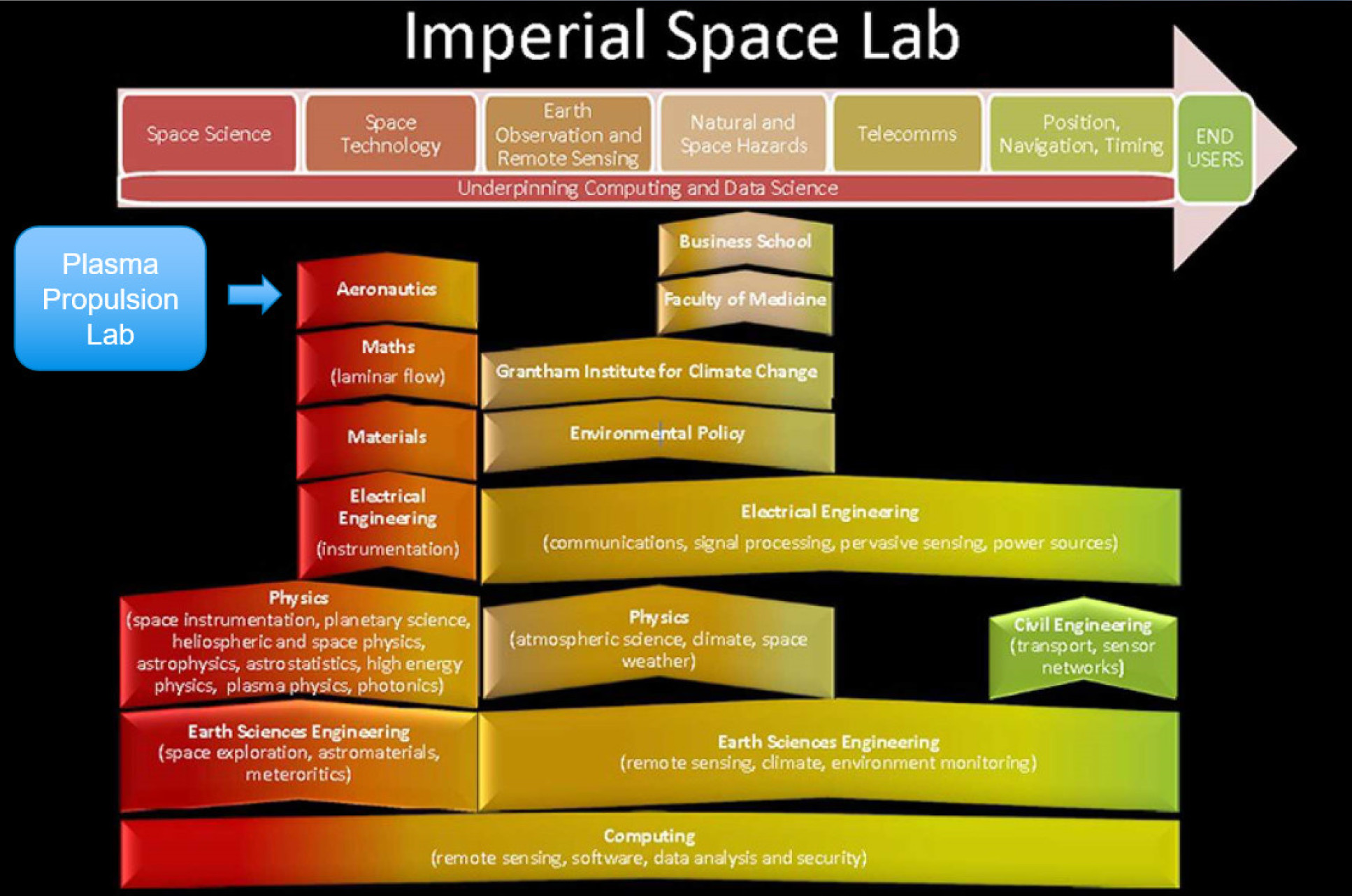The Imperial Plasma Propulsion Laboratory (IPPL) was established in 2017 by Dr. Aaron Knoll with a vision to tackle the most pressing challenges faced by mankind today in the areas of power and propulsion through Excellence in Teaching and Excellence in Research. The PhD, MSc, MEng, and undergraduate students of the lab are trained by performing hands-on cutting-edge research to expand our understanding of the unknowns in these areas. They will form the next generations of scientists and engineers with well-shaped knowledge and expertise to address existing challenges in the field.
The IPPL provides expert competency in space propulsion technologies, and fits within the Department of Aeronautics’ contribution toward the advancement of Space Technology, one of six thematic areas unified strategically within the Imperial Space Lab.

In pursuit of its vision, the IPPL has formed strong bonds and partnerships with UK and European academia and industry. As a result of these collaborations, the IPPL has obtained a wide range of experience in the design, modelling, and experimental investigation of Electric Propulsion (EP) devices for spacecraft applications.
The laboratory's research has resulted in commercial impact. The Quad Confinement Thruster (QCT), invented by Dr Knoll in 2009, was launched into orbit in 2018 by commercial partner Surrey Satellite Technology Ltd. The QCT remains the world’s only flight proven satellite propulsion system capable of actively vectoring the direction of thrust using electromagnetic steering without moving parts. The QCT has been patented (US 9181935 and PCT/GB2011/051016) and sold to Airbus under the terms of a license agreement.
In 2020 the IPPL joined a consortium of European leading industrial and academic partners for an ambitious H2020 project, ASPIRE (Advanced Space Propulsion for Innovative Realization of space Exploration) coordinated by SITAEL SpA in Italy. Within this project, the IPPL is responsible for the kinetic modelling of plasma behaviour and instabilities in a high-power (20 kW) magnetically-shielded Hall thruster. It is also responsible for investigating the incorporation of data-driven and machine-learning techniques in plasma modelling with a view towards enabling device performance prediction.
More information on these lines of research and other team's activities can be found in our Research pages. If you are interested in any of our research activities and would like to discuss further, or may perhaps like to ask a general question, please feel free to contact us using the details provided here.